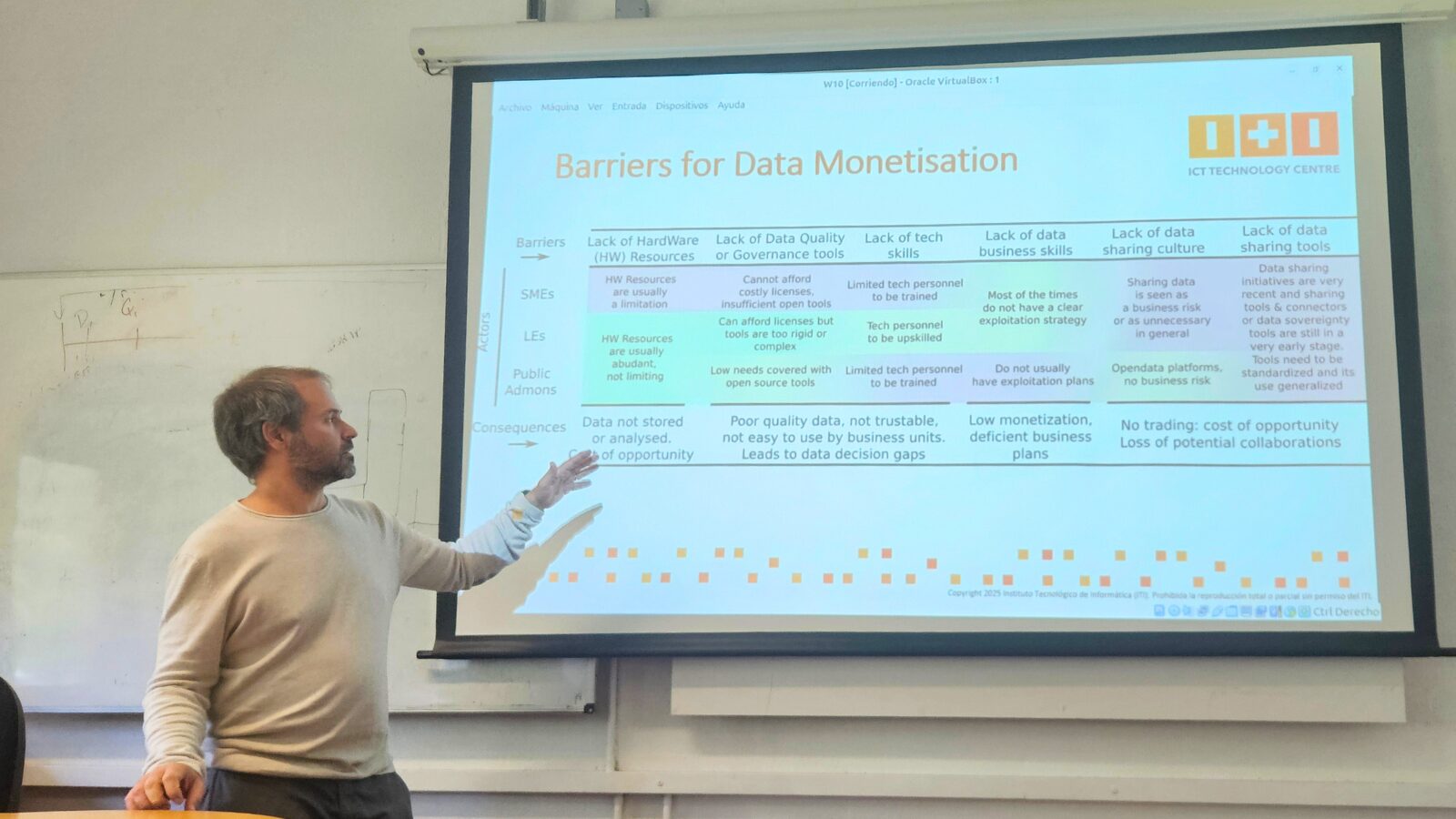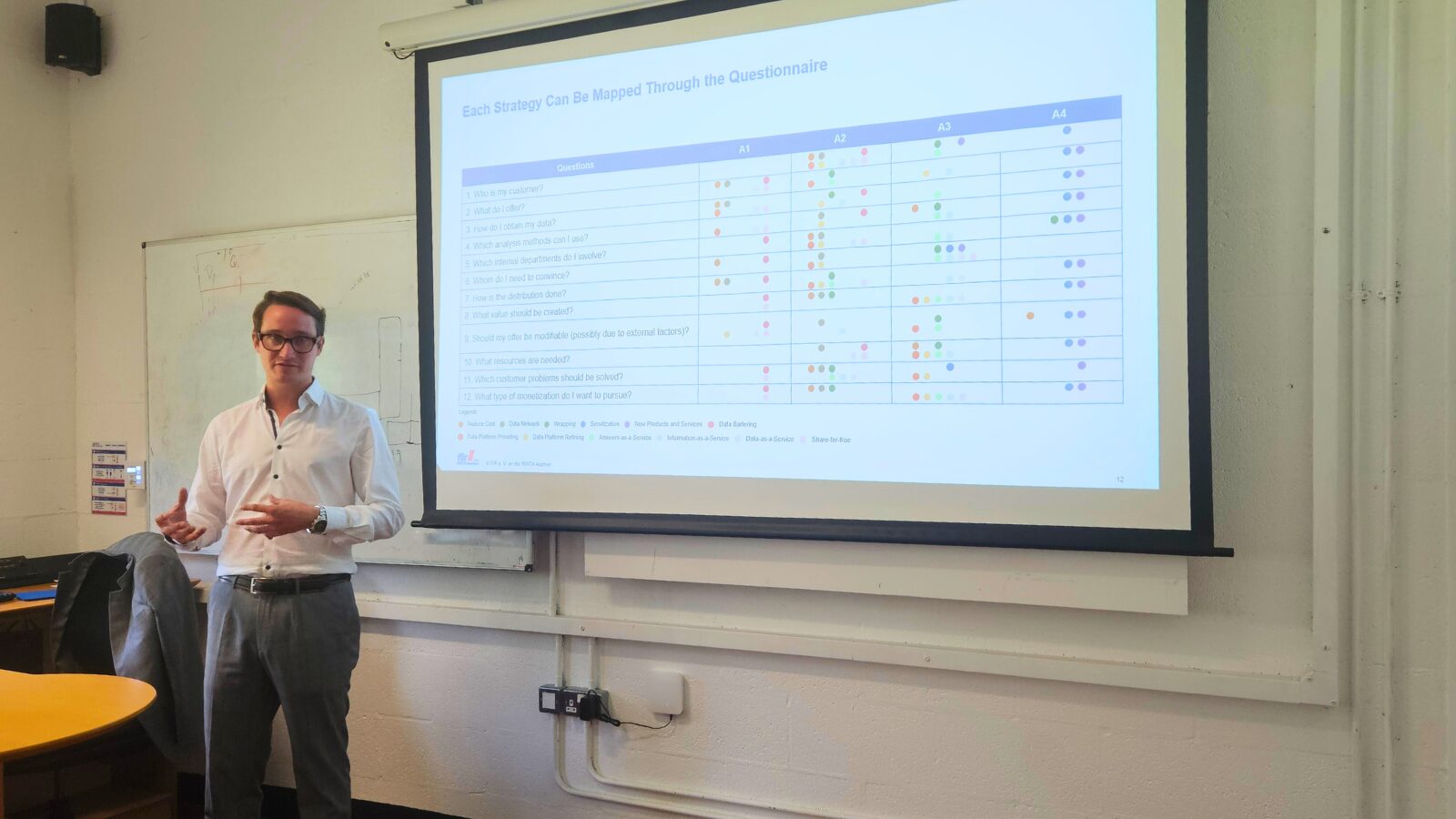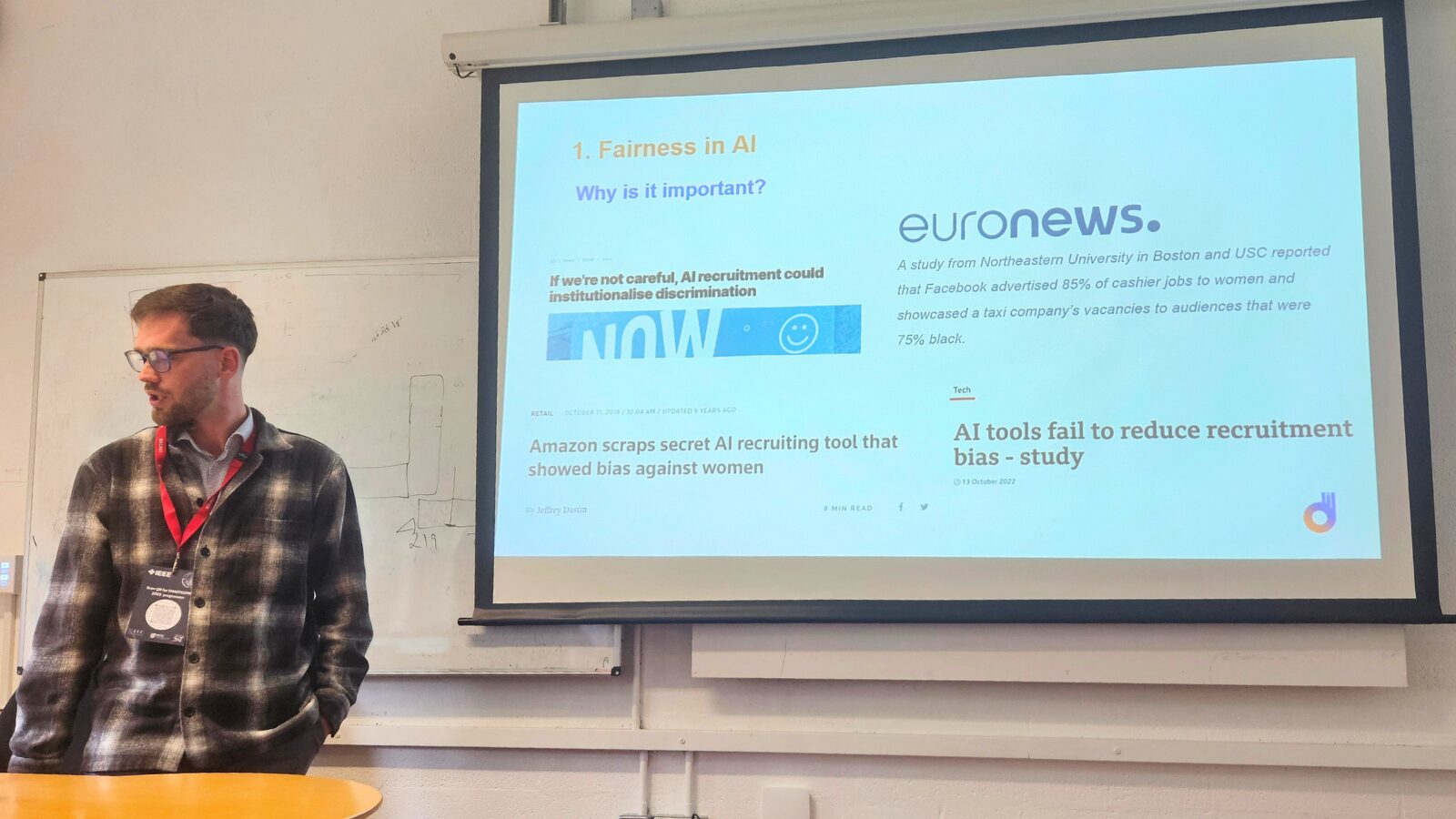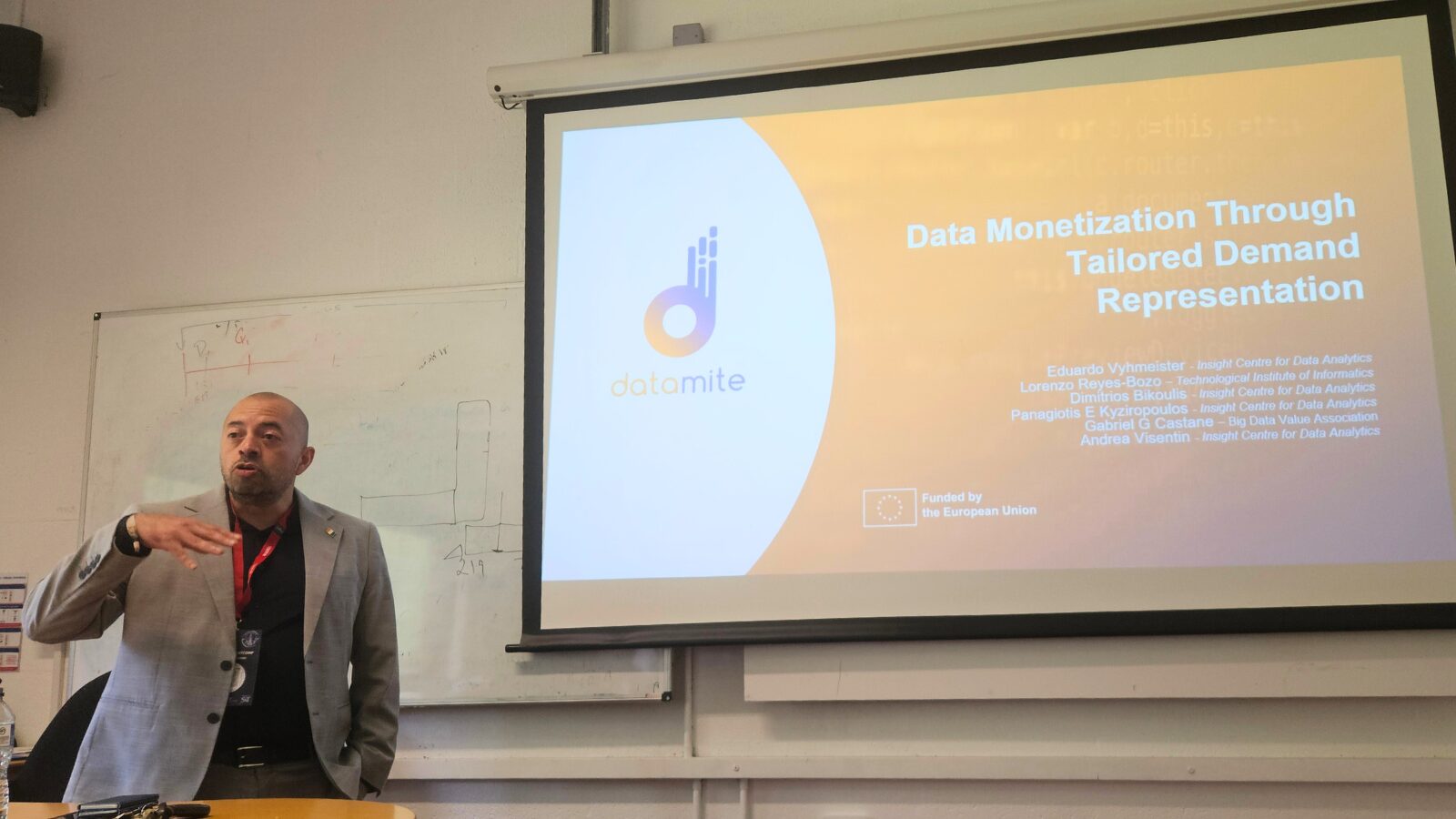The 2025 IEEE International Conference on Smart Computing (SMARTCOMP) took place from 16 to 19 June in Cork, Ireland. SMARTCOMP is the leading conference in the field of smart computing, which is a multidisciplinary domain based on advances in sensor-based technologies, the Internet of Things, cyber-physical systems, edge computing, big data analytics, machine learning, cognitive computing and artificial intelligence.
This year’s conference programme included the 1st International Workshop on Smart AI Models and Data Sharing and Monetisation (SmartAIDa), held 16 June. SmartAIDa aimed to address the growing need for effective frameworks and technologies that enable the sharing, monetisation, and governance of AI models and datasets. As artificial intelligence becomes a cornerstone of innovation across industries, leveraging its full potential requires robust infrastructures, interoperability, and a focus on trust, security, and value creation. Jordi Arjona (ITI), DATAMITE’s technical coordinator, was the keynote speaker, and several consortium members presented DATAMITE-related papers.

The keynote, entitled ‘AI & Data Spaces: The Rise of (Data) Quality’, focused on the importance of quality data. Jordi Arjona stated that, with the arrival of Data Spaces and the disruption caused by Generative AI, data quality is once again in the spotlight and will play an even more important role at the intersection of these two worlds. The four DATAMITE-related papers presented at the workshop were:
‘Towards a Framework for Intelligent Sampling: Comprehensive Review of Challenges, AI Techniques and Tools’, presented by Lander Bonilla (Tecnalia and the University of Deusto), provides an overview of the key challenges associated with traditional data sampling methods. These challenges include class imbalance, overfitting and bias. The paper then explores how AI techniques can solve these problems and improve the sampling process.
‘Validating a Strategy Questionnaire for Data Monetization’, presented by Martin Loers (FIR and RWTH Aachen University), introduces a questionnaire-based tool designed to help organisations select appropriate data monetisation strategies based on their business models. The tool is built on academic research, industry insights and expert input, and maps responses to one or more of twelve predefined strategies.
‘Data Monetization Through Tailored Demand Representation’, presented by Eduardo Vyhmeister (Insight Centre for Data Analytics, University College Cork), explores how detailed consumer demand models can support more effective data monetisation strategies. The paper reviews various methods of capturing digital market behaviour, improving upon them by taking elements such as price sensitivity, trust and quality perception into account.
‘A Tool for Fairness Assessment and Red‑Lining Detection in AI Systems’, presented by Dimitrios Bikoulis (Insight Centre for Data Analytics, University College Cork), introduces a practical framework for evaluating fairness in complex AI systems. The tool brings together advanced fairness metrics and association analysis to reveal hidden biases and proxy variables tied to sensitive attributes, which are key indicators of indirect discrimination or red-lining.
If you want to always stay updated about our project, follow us on LinkedIn, Twitter and Bluesky!



